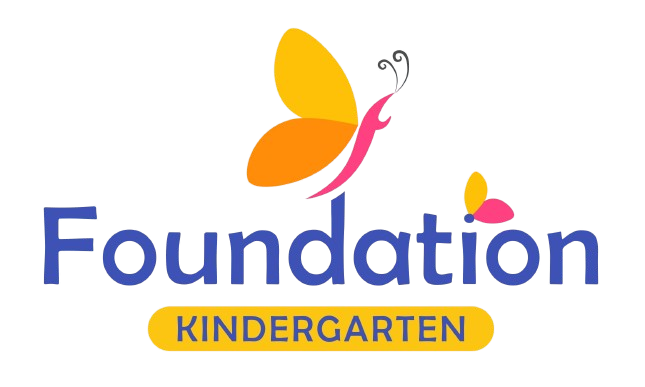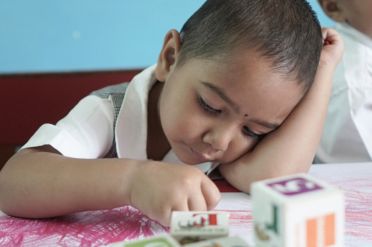The Importance of Sensory Play in Cognitive Development
Young children are natural explorers who learn best when they engage with their surroundings using all their senses. Sensory play—activities that involve touch, smell, taste, sight, and sound—stimulates brain development and encourages cognitive growth. At Foundation Kindergarten, "your child's second home," we recognize the power of sensory play to build skills through discovery, offering experiences that are foundational to a child’s learning journey.
At Foundation Kindergarten, with 32 years of excellence in preschool education, we are committed to offering a sensory-rich, inclusive environment where learning feels as natural as play. By recognizing and respecting each child’s unique pace, we make sensory play an essential part of their learning journey. Here, children discover new concepts through touch, sight, sound, and more—experiences that are foundational for lifelong learning. We believe that when children learn through discovery, their love for learning grows naturally, reinforcing our core values that #earlylearningmatters and that each child deserves an environment where they can thrive.
Why Sensory Play Matters in Early Learning
Sensory play goes beyond fun; it engages different parts of a child’s brain, helping them process and understand information. This hands-on approach is central to our #playbasedlearning philosophy. Engaging multiple senses supports memory formation, improves language skills, and even builds social skills as children explore together.
Sensory Play Activities to Boost Cognitive Development
1. Texture Exploration with Nature Objects
Activities like creating nature sensory bins with leaves, sand, and rocks help children differentiate textures, an essential skill for sensory processing.
2. Water Play for Math and Science Skills
Simple water play introduces basic math and science concepts like volume, cause-and-effect, and measurement. By observing how water flows or splashes, children engage in early scientific thinking.
3. Exploring Shapes and Colors
Using colourful blocks or play dough encourages children to notice patterns, shapes, and colours, supporting both fine motor skills and early math abilities.
4. Color Mixing and Painting
When children mix colours and paint, they discover how colours combine and change. They can paint freely or follow a theme, expressing their creativity and learning about colours.
- Benefits: Color mixing activities introduce children to basic science concepts, support creativity, and enhance cognitive flexibility as they learn to adapt and predict outcomes.
5. Sound Exploration with Musical Instruments
Children can play with instruments like drums, tambourines, and xylophones, exploring different sounds, rhythms, and tempos. They can create patterns, which introduces them to early math and music concepts.
- Benefits: Sound exploration improves auditory discrimination, pattern recognition, and memory. It also fosters an understanding of rhythm and sequence, which supports cognitive development in areas related to math and language.
6. Nature Exploration and Texture Walks
A texture walk, where children feel different natural materials like leaves, stones, sand, or grass, encourages exploration and sensory awareness. They can describe the sensations and identify different textures.
- Benefits: This activity promotes observation skills, vocabulary building, and sensory processing, encouraging children to be mindful and curious about their surroundings.
7. Sensory Bins
Sensory bins can be filled with various materials, such as rice, beans, or shredded paper, along with objects like letters, numbers, or toys. Children can search, count, and sort, which aids in cognitive processing and classification.
- Benefits: Sensory bins engage children in activities that enhance focus, memory, and categorization skills, making them ideal for both cognitive and language development.
Sensory play is not just enjoyable—it’s foundational to early learning. At Foundation Kindergarten, we integrate sensory play into our daily curriculum because #earlylearningmatters. Our rich, hands-on environment nurtures each child’s curiosity, creating a space for them to grow and discover the world around them.
Our approach to sensory play isn’t just about play—it’s about creating an environment that nurtures each child’s growth in a supportive, joyful way. As “Your Child’s Second Home,” Foundation Kindergarten ensures a safe, engaging, and exploratory space, reflecting our 32 years of excellence in preschool education. We believe that sensory play gives children the tools to thrive, setting them up for a lifetime of learning and discovery.

